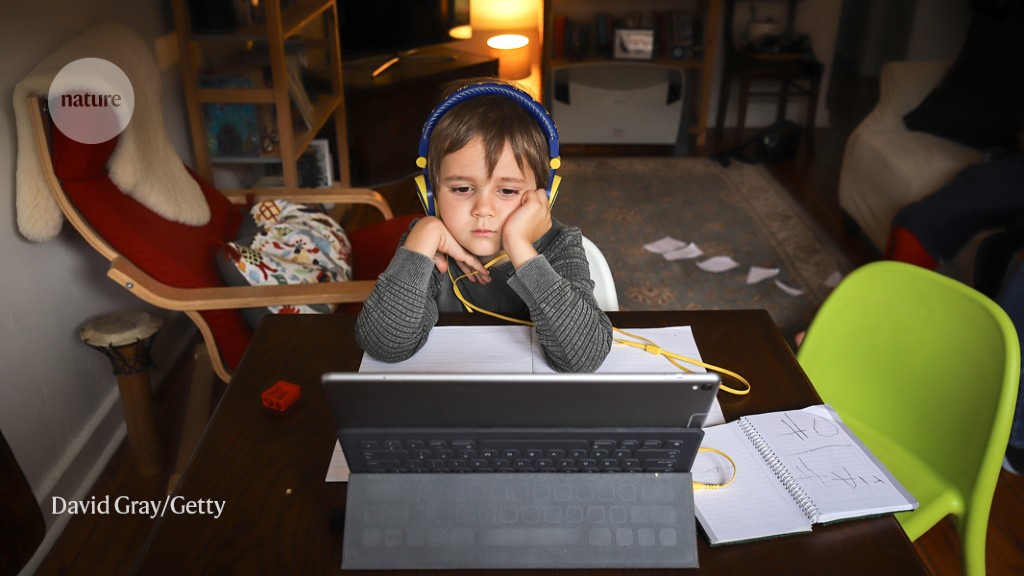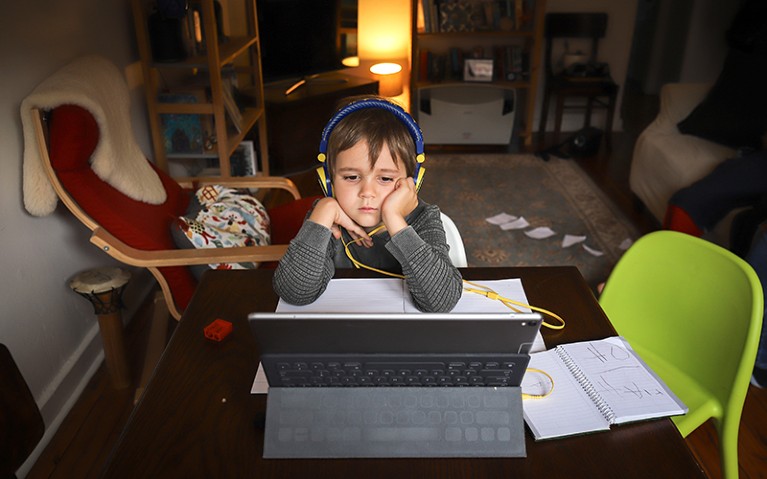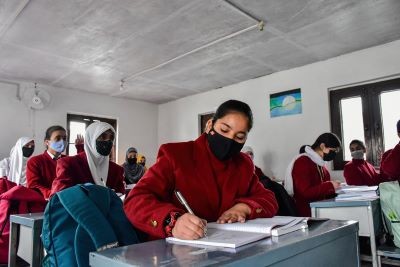When countries locked down at the start of the pandemic, school closures were widespread.Credit: David Gray/Getty
Children lost out on more than one-third of a school years’ worth of learning during the COVID-19 pandemic, an analysis has found. Their mathematics skills were more affected than their reading abilities.
The study, published in Nature Human Behaviour on 30 January1, shows that efforts to prevent further learning losses after the pandemic have been successful, but school-aged children have not caught up on the loss of knowledge and skills that they experienced at the start of the pandemic, during which school closures were widespread.
“This is going to be a real problem for this generation that experienced the pandemic in school,” says Bastian Betthäuser, a sociologist at the University of Oxford, UK, and a co-author of the study. If not addressed, these learning losses will affect this generation’s success in the labour market, he adds.
School closures
The COVID-19 pandemic caused the largest disruption to education in history: 95% of the world’s student population was affected by school closures. According to the United Nations cultural organization UNESCO, schools suspended in-person teaching for an average of 3.5 months during the pandemic.
COVID derailed learning for 1.6 billion students. Here’s how schools can help them catch up
The authors screened 5,997 peer-reviewed papers and preprint studies on the pandemic’s impacts on education. They looked at learning deficits — delays in learning progress, measured using test scores — as well as the loss of skills and knowledge that children already had before the pandemic. Their analysis included 291 learning-deficit estimates, reported in 42 studies from 15 high- and middle-income countries: the United States, the United Kingdom, Australia, Belgium, Brazil, Denmark, Italy, Spain, Mexico, Sweden, Switzerland, South Africa, the Netherlands, Germany and Colombia.
The researchers calculated that, on average, school-aged children across all grades lost 35% of a school year’s worth of learning during the pandemic, and that these learning gaps had not been recovered as of May 2022. The loss of skills was worse in maths than in reading — possibly because parents are less able to help their children with maths exercises, the researchers speculate.
There are, however, some skills that children might have developed during the pandemic as a result of remote or hybrid teaching, says Luka Lucic, a psychologist at the Pratt Institute in New York City. “Kids were getting super familiarized with the cyberspace and technological context, and will in the future be much more native to the digital world.”
Reinforced inequalities
The learning slowdown during the pandemic was not just an outcome of school closures, but a combination of factors involving home learning environments. These include “access to learning equipment, computers, digital resources, having a quiet room to work in … and economic insecurity amongst family”, says Betthäuser. “The pandemic reinforced learning inequality at the global level.”
There was a lack of data from lower-income countries, but the study found that children from more disadvantaged socio-economic backgrounds in high- and middle-income countries have experienced larger learning losses. The authors predict that the pandemic’s effects on learning will be more severe for children in poorer regions.
“Those students were suffering before the pandemic, they suffered more during the pandemic, and now, as we’re trying to get our way out of this, they’re going to receive less than others to recover,” says Amanda Neitze, a researcher at the John Hopkins University School of Education in Baltimore, Maryland.
Policy initiatives to help children to recover lost learning and skills are urgently needed, researchers say. “This isn’t going to be something that we catch up in a year or two, when everything is back to normal — I think this is going to be a decade long,” says Neitze. “We need to rethink schooling and make substantial changes to the structure and way that we do education to make this up.”








More News
Daily briefing: Why exercise is good for us
Daily briefing: Orangutan is first wild animal seen using medicinal plant
Old electric-vehicle batteries can find new purpose — on the grid